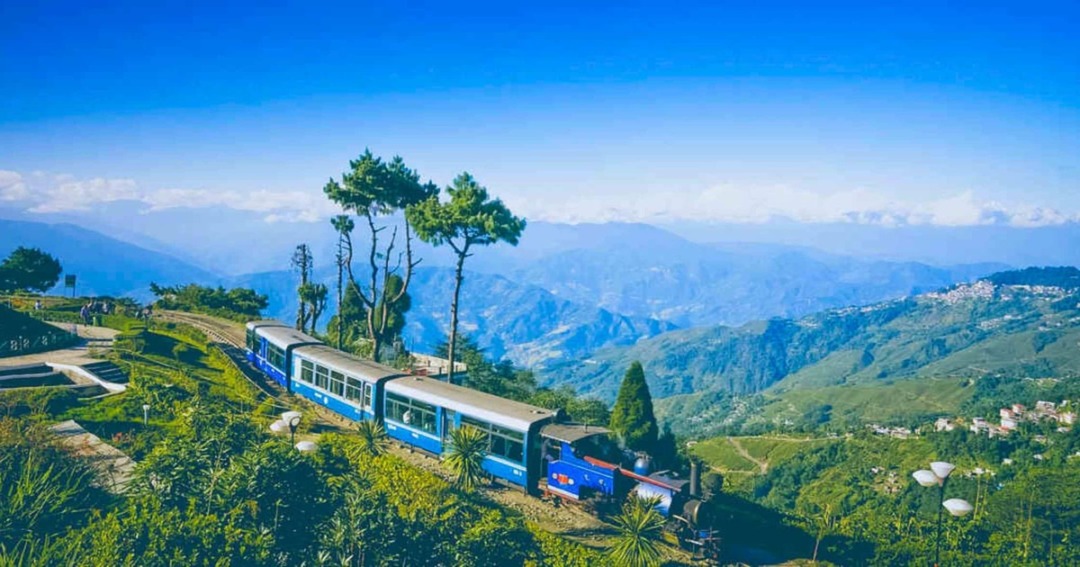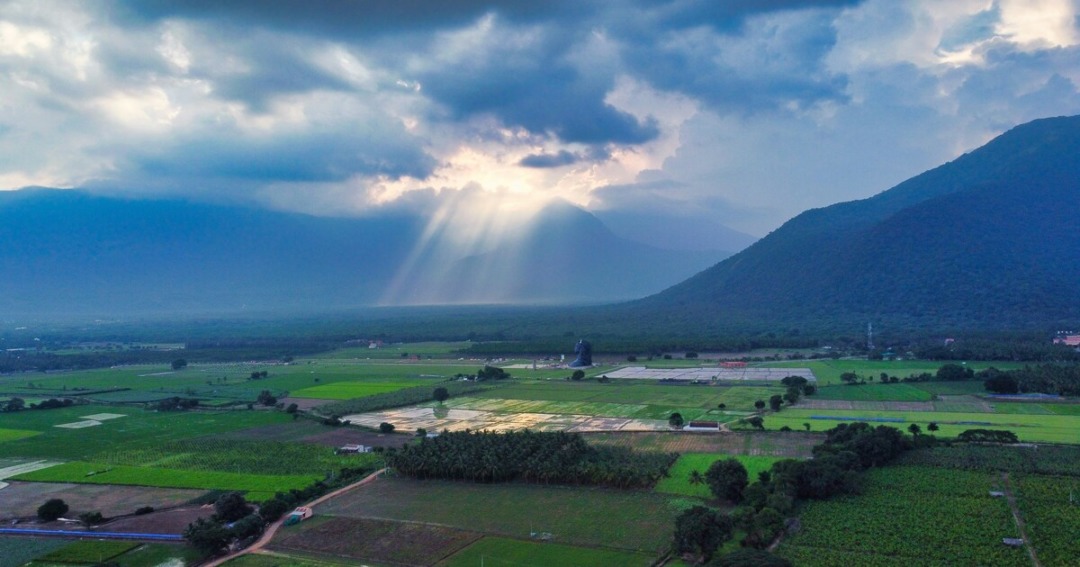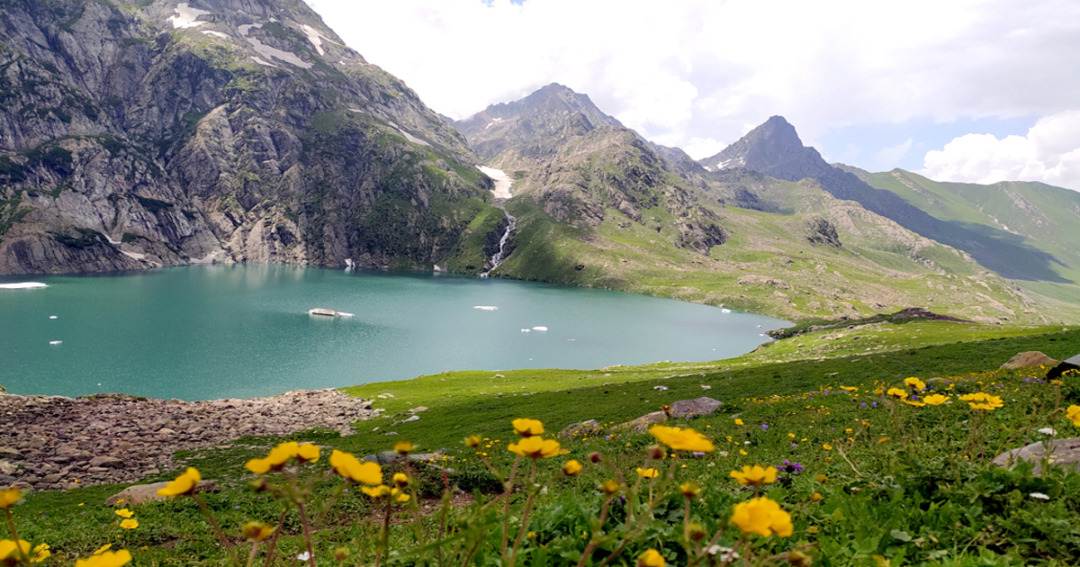
![]()
The Kashmir Great Lakes Trek is not just a hike, it’s a journey into the untouched heart of the Himalayas. This trek takes you through lush green valleys, high-altitude alpine lakes, and breathtaking mountain passes that look like they were plucked straight out of a dream. If you’ve ever wondered what paradise might look like, the Kashmir Great Lakes Trek is your answer.
Kashmir Great Lakes Trek: Complete Guide 2026
The Kashmir Great Lakes Trek is one of India’s most beautiful and rewarding high-altitude treks. Spread across 70-75 kilometers, it usually takes 6 to 8 days to complete. The trail starts from Sonamarg and ends at Naranag, both located in Jammu & Kashmir. Along the way, trekkers cross three high-altitude mountain passes and encounter more than seven pristine alpine lakes, each one more stunning than the last.
What is the Best Time to Do the Kashmir Great Lakes Trek?
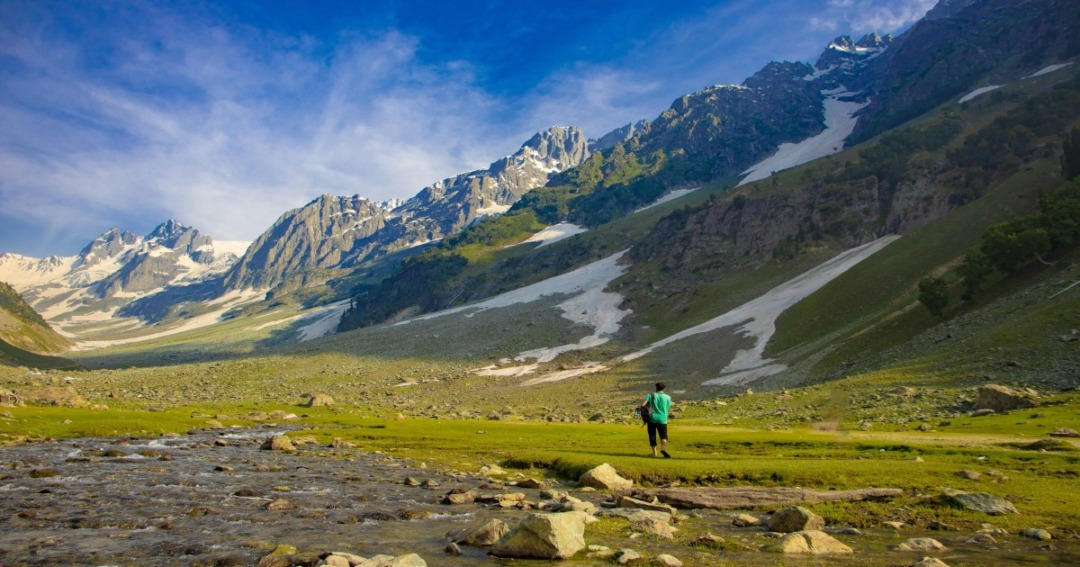
The ideal time to undertake the Kashmir Great Lakes Trek is from mid-June to mid-September. During these months, the snow has melted, the wildflowers are in full bloom, and the weather is stable. July and August are considered peak season.
Why is the Kashmir Great Lakes Trek So Special?
- Seven Alpine Lakes: Vishansar, Krishansar, Gadsar, Satsar, Gangabal, and Nundkol are just some of the gems you’ll pass. These lakes are crystal-clear, glacial-fed, and surrounded by wildflowers and snow-capped peaks.
- Ever-changing Landscapes: One moment you’re walking through pine forests, and the next you’re in vast meadows dotted with sheep and horses.
- Local Culture: You’ll pass Gujjar and Bakarwal settlements, nomadic tribes who live off the land and add a rich cultural element to the experience.
- Challenge and Reward: With altitudes ranging from 7,800 to over 13,750 feet, the trek is physically demanding, but every climb is rewarded with unmatched views.
Route and Day-Wise Itinerary for The Kashmir Great Lakes Trek
- Day 1: Drive from Srinagar to Sonamarg. Acclimatization day.
- Day 2: Trek from Sonamarg to Nichnai via Shitkadi (approx. 11 km)
- Day 3: Nichnai to Vishansar Lake via Nichnai Pass
- Day 4: Acclimatization + side trek to Krishansar Lake
- Day 5: Vishansar to Gadsar via Gadsar Pass (13,750 ft)
- Day 6: Gadsar to Satsar Lakes
- Day 7: Satsar to Gangabal and Nundkol Lakes via Zaj Pass
- Day 8: Trek to Naranag and drive back to Srinagar
How much does the Kashmir Great Lakes Trek Cost?

The Kashmir Great Lakes Trek cost typically ranges from INR 17,000 to INR 30,000, depending on the trekking operator, inclusions, and group size. Most packages include meals, guides, camping gear, permits, and transport from Srinagar. You can ask seasonal trekkers on travel apps like Explurger on how to go about it. Put your trust in actual travelers who have seen the real wild, hop on to Explurger today, and join the tribe.
What to Pack for the Kashmir Great Lakes Trek?
Every trekker has different needs, and if you book through agencies and organizations, they will have their additions to it, but largely, this is what you’ll need:
- Sturdy trekking shoes
- Thermals and layered clothing
- Windproof and waterproof jacket
- Trekking pole
- Sunscreen, sunglasses, and a cap
- Personal medication and first-aid kit
- Reusable water bottle and energy bars
Fitness and Preparation
The Kashmir Great Lakes Trek is moderately difficult. It requires good cardiovascular fitness and stamina. Prepare by doing long jogs, stair climbing, or running for at least 4 weeks before the trek.
Permits and Connectivity
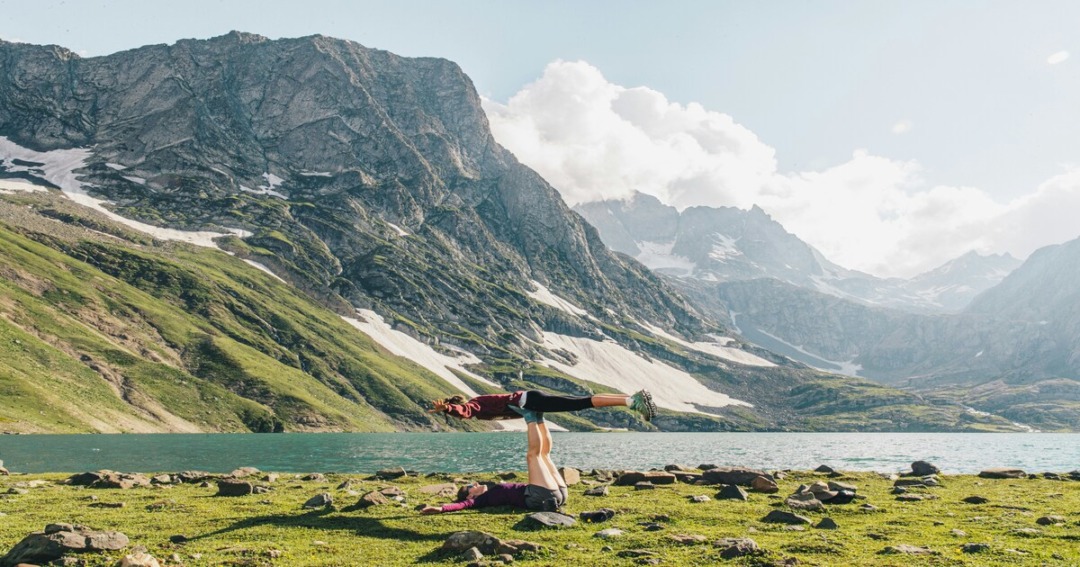
Trekkers need to carry a valid ID, a medical certificate, and a trekking permit, which is usually arranged by the operator. Mobile networks are available only at the starting point (Sonamarg) and endpoint (Naranag). Once you’re on the trail, it’s all nature, no distractions.
Pro Tips for a Great Lakes Kashmir Trek
- Always carry waterproof bags for electronics
- Don’t litter- use eco-friendly toiletries
- Acclimatize well to avoid altitude sickness
- Stay hydrated and pace yourself
- Respect the local culture and wildlife
- Fret not and enjoy!
The Kashmir Great Lakes Trek vs Other Treks
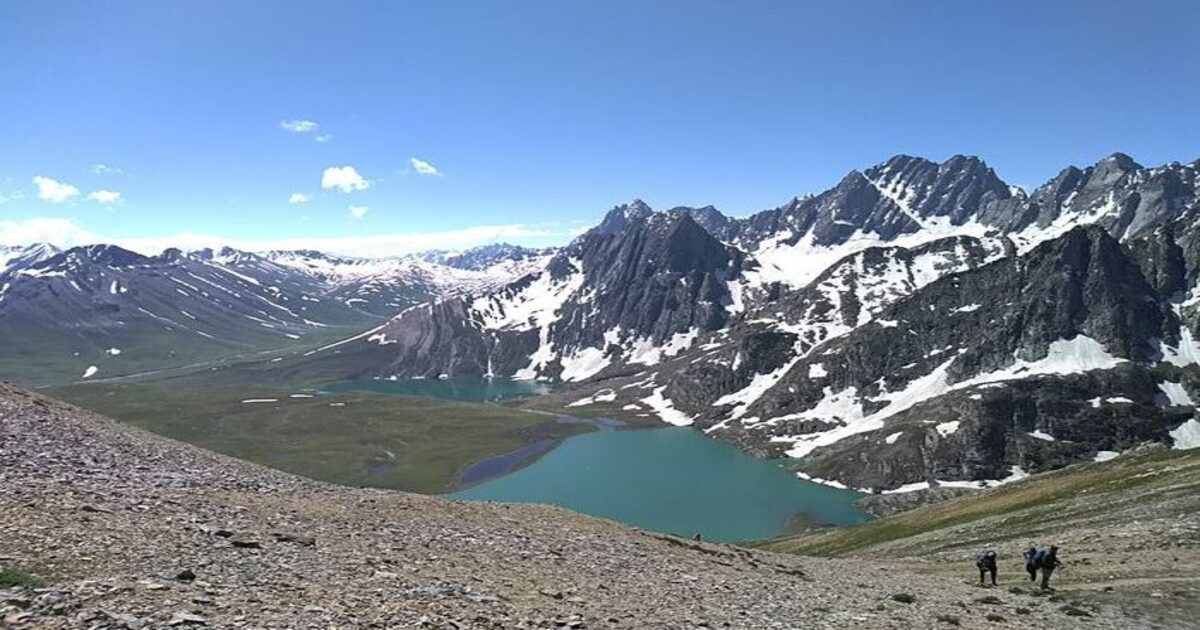
The Kashmir Great Lakes Trek stands in a league of its own when compared to other popular Himalayan treks. While treks like Kedarkantha, Hampta Pass, and Valley of Flowers each have their charm, none offer the sheer variety that the Great Lakes Trek does. Unlike Kedarkantha, which is known for snow-covered forests and winter beauty, the Kashmir Great Lakes Trek is a summer spectacle bursting with wildflowers, lush meadows, and glacial lakes. Valley of Flowers is another floral paradise, but it follows a single trail and focuses on one national park, whereas the Great Lakes Trek offers a new visual landscape every day.
The multiple alpine lakes, high-altitude passes, and remote valleys of the Great Lakes Kashmir Trek give trekkers a chance to truly disconnect. There are fewer built-up campsites, minimal foot traffic (compared to the more commercial routes), and a sense of wilderness that’s hard to match. What truly sets the Great Lakes Trek apart is the combination of challenge, scale, and serenity. It’s not just a scenic walk; it’s a soul-stirring experience. If you’re looking for a trek that tests your endurance while rewarding you with nature’s grandest show, the Kashmir Great Lakes Trek is the one to beat.
What makes the Kashmir Great Lakes Trek stand apart from others like Kedarkantha or Valley of Flowers is its raw, untouched beauty. The scale of the landscapes, the number of alpine lakes, and the lack of commercialization make it a unique adventure.
Don’t just read about it—go live it.
While you’re preparing, head to Explurger and meet like-minded travelers who might just end up going with you!
Download Explurger Now- Link
FAQ About the Kashmir Great Lakes Trek
2. What is the difficulty level of the trek?
Moderate to difficult. Some days involve 8-9 hours of trekking with steep ascents and descents.
3. How do I reach the base camp?
Reach Srinagar. Most operators provide pickup from Srinagar to Sonamarg.
4. Can beginners do the Great Lakes Trek?
With good preparation and a reasonable level of fitness, yes. But mental toughness is key.

